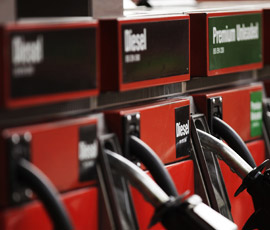Rural areas worst affected by ‘transport poverty’

Inflated fuel prices and insufficient transport links make rural areas the worst affected by transport poverty, according to a report by cycling charity Sustrans.
Among the worst-affected areas are the east of England, Cumbria, North Yorkshire and Devon.
Department for Transport traffic figures released last week showed that traffic on minor roads is down 5%, compared to less than 1% on other roads.
And the isolation in rural areas, with limited and expensive bus and rail services, is leaving some residents with a choice of debt or social exclusion, the report says. This may lead to many forced car ownerships, it adds.
Rural dwellers may also face isolation from shops, schools, hospitals and job opportunities in remote locations without the means to travel.
Vast job increases are required in agriculture over the next decade to sustain the industry, but the Sustrans report explains that 64% of jobseekers do not have access to a car, with two in five saying they find this a “barrier to employment”.
Malcolm Shepherd, chief executive of Sustrans, said: “This is unlikely to change in the long term with fuel prices going up and up.”
AA spokesman Luke Bosdet highlighted the importance of transparency of pump prices to combat the prohibitive cost of fuel.
He said: “The heavy impact of record fuel prices makes a significant difference.”
He added that the record fuel prices since mid-April have been even higher in rural areas, only adding to the problem.
The Sustrans report also highlights that nearly half of all households across England are already struggling with the costs of car ownership.

